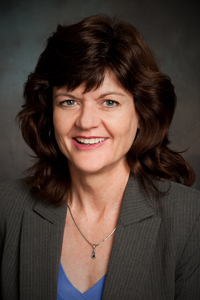
Dr. Linda Botterill, a political scientist from Australia, studies the intersection of science and policy in areas. She will speak 3:30 p.m. June 24, at the Nebraska East Union. Her talk, "The Role of Science in the Evidence-Based Policy Process," is free and open to the public.
Botterill is director of the National Institute for Rural and Regional Australia at the Australian National University. She has been a long-time collaborator with Donald A. Wilhite, director of UNL's School of Natural Resources and founding director of the National Drought Mitigation Center. She is in the U.S. for several weeks this summer to conduct research on the impact of science on drought policy in this country. This research is part of a larger project funded by the Australian Research Council, comparing drought policy development in Australia and the U.S.
The science-policy connection "is a space that not a lot of people are comfortable in -- the dialog between research output and policy input," Botterill said. "Scientists hold expert knowledge which is frequently required by policymakers in arriving at complex decisions. Advances in science can provide the impetus for policy action and provide the tools for policy implementation. An emphasis on scientific advice does not, however, remove the politics from the decision- making process."
From her ringside seat, Botterill has observed that communication between scientists and policymakers is full of potential pitfalls: Science contains much uncertainty, and policymakers often want certainty. Sometimes, simplifying the science for a broader audience means putting it in context of popular beliefs, whether or not they are evidence-based, and it can also mean the loss of caveats with potential impacts on policy outcomes.
In the area of drought, monitoring in the U.S. is a long way ahead of Australia, and physical scientists have led the way in this field. By contrast, Australian policymakers developed a national drought policy and then turned to the scientific community to assist in developing triggers for government drought relief.
Botterill's talk will focus on her preliminary findings in the U.S., in context of the broader issue of scientific evidence and the policy process.
Writer: Kelly Helm Smith, School of Natural Resources
More details at: http://go.unl.edu/4g0